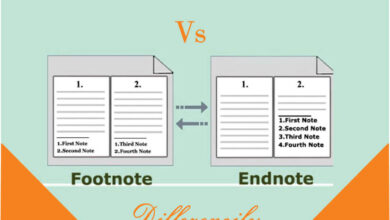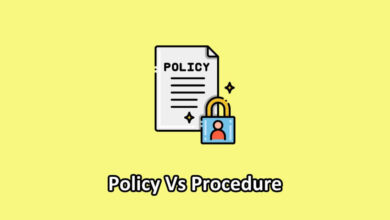In a world driven by progress and innovation, the terms “efficiency” and “effectiveness” often find themselves at the forefront of discussions in various domains, from business to personal development. These two concepts are the cornerstones of success, but they’re often used interchangeably, blurring the lines that define their unique attributes.
In this journey of exploration, we will dive deep into the complete difference between efficiency and effectiveness, unraveling their meanings, understanding their significance, and learning how to apply these principles in our lives and businesses.
Efficiency is about doing things right, optimizing processes, and conserving resources, while effectiveness revolves around doing the right things, accomplishing objectives, and driving results.
Efficiency Vs. Effectiveness (A Comparison)
| Efficiency | Effectiveness |
|---|---|
| Efficiency refers to the ability to accomplish a task or goal with minimal waste of resources, such as time, money, or energy. | Effectiveness is the degree to which a goal or objective is achieved. It measures how well a task or process accomplishes its intended purpose, regardless of the resources utilized. |
| Efficiency is primarily concerned with “how” tasks or processes are completed, emphasizing the optimization of resources and the elimination of waste. | Effectiveness concentrates on “what” tasks or processes are accomplished, focusing on achieving specific goals and outcomes. |
| It places a strong emphasis on improving and streamlining processes to minimize time and resource usage. | It centers on setting and attaining objectives, and measuring success based on whether the desired outcomes are achieved. |
| Efficiency is the means to an end, as it’s a method of achieving goals more economically, but it doesn’t inherently ensure that the right goals are pursued. | Effectiveness is the end in itself; it’s about defining and pursuing the right goals, with less concern for the efficiency of the processes involved. |
| Efficiency often focuses on short-term gains, seeking immediate improvements in resource utilization and cost reduction. | Effectiveness takes a longer-term perspective, concentrating on sustainable success and achieving strategic objectives over time. |
| It often looks inward, within an organization, to improve internal processes and operations. | It takes an external perspective, looking at how well an organization meets the needs and expectations of its customers or stakeholders. |
| Efficiency is all about “how” you do things. It’s like finding the most resourceful and cost-effective way to get tasks done. | Effectiveness emphasizes “what” you achieve. It’s about setting and reaching specific goals, ensuring you’re doing the right things to meet your objectives. |
| Efficiency often has a short-term perspective. It aims to make immediate improvements, save time, and reduce costs quickly, like solving immediate problems. | Effectiveness looks at the long term. It’s about setting and pursuing goals that may take time to achieve but have a lasting impact. |
| The approach to efficiency involves examining the way tasks or processes are done and finding ways to make them more streamlined. | Effectiveness involves setting clear objectives, aligning your actions with your mission, and making sure you’re focusing on the right goals to achieve your desired outcomes. |
What is Efficiency?
Efficiency is the art of doing things with the least amount of wasted time, energy, or resources. It’s the hallmark of a well-organized and streamlined process. When a system or operation is efficient, it accomplishes tasks in the most economical and productive way possible. This means reducing unnecessary steps, cutting out superfluous activities, and optimizing every aspect to save time and resources.
Key Characteristics of Efficiency
- Resource Optimization: Efficiency is all about making the most of what you have. Whether it’s using fewer materials in manufacturing or minimizing the number of steps in a project, it’s about resource optimization.
- Time-Saving: Efficient processes save time. They are designed to complete tasks quickly without compromising the quality of the outcome.
- Cost Reduction: Efficiency reduces costs. When you streamline operations, you cut expenses associated with wasted resources and time.
- Productivity Boost: Employees and systems working efficiently are more productive. They get more done in less time.
What is Effectiveness?
Effectiveness is the measure of how well a goal is achieved. It’s all about achieving the desired outcomes and meeting objectives. You can be highly efficient, but if you’re not effective, your efforts may be in vain. Effectiveness is about focusing on tasks and activities that have the most significant impact on your goals.
Key Characteristics of Effectiveness
- Goal-Orientation: Effectiveness revolves around achieving specific goals. Every action and decision should contribute to the realization of those goals.
- Quality Over Quantity: It’s not about how much you do, but how well you do it. Effective work is high-quality work that aligns with your objectives.
- Strategic Thinking: Effective individuals and organizations think strategically. They plan their actions to achieve the maximum impact.
- Adaptability: Effectiveness requires adaptability. If a strategy isn’t working, effective individuals are willing to change course to reach their goals.
Key Differences Between Efficiency and Effectiveness
- Focus on “How” vs. “What”: Efficiency is primarily concerned with “how” tasks or processes are completed, emphasizing the optimization of resources and the elimination of waste. Effectiveness, on the other hand, concentrates on “what” tasks or processes are accomplished, focusing on achieving specific goals and outcomes.
- Internal vs. External Perspective: Efficiency often looks inward, within an organization, to improve internal processes and operations. In contrast, effectiveness takes an external perspective, looking at how well an organization meets the needs and expectations of its customers or stakeholders.
- Time Horizon: Efficiency often has a short-term perspective. It aims to make immediate improvements, save time, and reduce costs quickly, like solving immediate problems. On the other hand, effectiveness looks at the long term. It’s about setting and pursuing goals that may take time to achieve but have a lasting impact. It’s like planning for the future and making sure you’re heading in the right direction.
Examples of Efficiency and Effectiveness in Different Contexts
Examples of Efficiency
- Manufacturing: In a manufacturing plant, efficiency could involve optimizing the assembly line to reduce the time it takes to produce each unit, thereby lowering production costs and increasing output.
- Transportation: Efficiency in transportation might mean using route optimization software to reduce fuel consumption and delivery time for a fleet of trucks, which can save money and improve customer satisfaction.
- Office Operations: An efficient office might adopt document management software to reduce paperwork and streamline workflows, making it easier for employees to find and share information quickly.
- Energy Usage: An efficient home could use smart thermostats and energy-efficient appliances to lower energy consumption, reducing utility bills and minimizing environmental impact.
Examples of Effectiveness
- Sales and Marketing: In a sales and marketing context, effectiveness could mean identifying and targeting the right customer segments with personalized advertising campaigns, resulting in higher conversion rates and increased sales.
- Project Management: In project management, effectiveness involves defining clear project goals and objectives, and ensuring that the project delivers the intended results within the specified time frame and budget.
- Customer Service: Effective customer service aims to resolve customer issues promptly and satisfactorily, leading to higher customer retention and positive reviews.
- Healthcare: Effectiveness in healthcare could involve personalized treatment plans based on a patient’s unique medical history and needs, resulting in better outcomes and improved patient satisfaction.
Efficiency and Effectiveness in Business
Efficiency is a cornerstone of business success. In the corporate world, optimizing resources, cutting costs, and streamlining processes are imperative for competitiveness. Companies apply efficiency in various ways, such as automating repetitive tasks, improving supply chain management, and reducing waste. This not only enhances productivity but also enhances the bottom line.
How Businesses Strive for Effectiveness
Effectiveness is equally significant for businesses. It’s about achieving business objectives, satisfying customers, and staying ahead in the market. To attain effectiveness, companies focus on customer-centric strategies, market research, and innovation. It’s not just about doing things efficiently but doing the right things that align with the company’s mission and values.
Balancing Efficiency and Effectiveness in Business Operations
Balancing efficiency and effectiveness is a perpetual challenge for businesses. On one hand, they need to save time and resources; on the other, they must strive for quality, customer satisfaction, and long-term growth. Achieving the right equilibrium is the key to sustainable success, as it ensures the company operates efficiently without compromising its effectiveness in the market.
The Relationship Between Efficiency and Effectiveness
Efficiency and effectiveness aren’t mutually exclusive; they can complement each other, coexisting harmoniously in both personal and business contexts. However, there are instances where tension arises, requiring careful navigation.
How Efficiency and Effectiveness Can Complement Each Other
Efficiency and effectiveness are like the Yin and Yang of success. When combined, they create a powerful force that drives remarkable results. Efficient processes can support effective strategies by reducing waste and allowing resources to be allocated to activities that matter most.
Cases Where There’s Tension Between the Two
While efficiency and effectiveness can be allies, they can also be at odds. For instance, a relentless pursuit of efficiency may lead to shortcuts that compromise the quality of a product or service. Similarly, focusing solely on effectiveness may lead to inefficiency due to a lack of optimization in processes.
Finding the Right Balance
The key to maximizing potential lies in finding the right balance between efficiency and effectiveness. Striking this balance requires a nuanced approach, where each situation demands a unique mix of the two. The ideal ratio may vary from one project to another, but recognizing when to emphasize efficiency and when to prioritize effectiveness is the path to sustainable success.
How to Improve Efficiency and Effectiveness in Strategic Management
Efficiency and effectiveness are pivotal in strategic management, where the success of an organization is meticulously planned and executed. This section will explore how businesses can improve their performance and gain a competitive edge through the judicious application of these principles.
Efficiency can be boosted by automating routine tasks, optimizing supply chains, and improving employee training. By eliminating redundant processes and embracing technological advancements, companies can work smarter and reduce operational costs.
To enhance effectiveness in strategic management, businesses must align their actions with their core goals and values. This involves developing a clear vision, setting measurable objectives, and continuously monitoring progress. Staying customer-focused, fostering innovation, and adapting to changing market conditions is essential to ensure that objectives are not just met but exceeded.
By combining these approaches, organizations can position themselves as industry leaders. They can operate efficiently while delivering high-quality products and services that genuinely satisfy their customers, fostering long-term success.
Measuring Efficiency and Effectiveness
In the world of business and personal development, measurement is key to improvement. Without the ability to assess and quantify efficiency and effectiveness, it’s challenging to make informed decisions and track progress. This section will delve into the methods and metrics for measuring these two critical attributes.
Metrics and Key Performance Indicators (KPIs) for Efficiency
Efficiency can be gauged through various KPIs, such as cost per unit, cycle time, and resource utilization. Cost per unit, for example, reveals how efficiently resources are used in production, while cycle time measures the time it takes to complete a process or task. Resource utilization metrics indicate whether resources are optimized or wasted.
Metrics and KPIs for Effectiveness
Effectiveness is assessed through KPIs like customer satisfaction, revenue growth, and market share. Customer satisfaction surveys and Net Promoter Scores (NPS) provide insights into how effectively a company is meeting customer needs. Revenue growth and market share metrics indicate the effectiveness of strategies in achieving market dominance.
Using Data and Tools to Evaluate Performance
Data analysis and measurement tools are essential for tracking efficiency and effectiveness. Businesses can employ various software solutions for data collection and analysis. Leveraging data insights, they can continuously refine their processes and strategies to align with their objectives.
Conclusion
In our exploration of efficiency and effectiveness, we’ve uncovered the subtle yet crucial differences that set them apart. Efficiency is about doing things right, while effectiveness is about doing the right things. Both are indispensable for success, whether in personal endeavors or business ventures.
Efficiency involves optimizing processes, conserving resources, and saving time, all of which contribute to cost reduction and increased productivity. Effectiveness, on the other hand, centers around goal achievement, quality, and strategic thinking.
Balancing these two concepts is a delicate art. Striving for efficiency should not come at the expense of effectiveness, and vice versa. By understanding when to emphasize each, individuals and organizations can unlock their full potential.
The final encouragement is to apply the wisdom gained from this guide to your own life or work. Recognize the situations that call for efficiency and those that demand effectiveness. By mastering this interplay, you can reach new heights of success and fulfillment. Embrace efficiency and effectiveness as your guiding stars on the path to excellence.
FAQs about Efficiency Vs. Effectiveness
What is the Primary Difference Between Efficiency and Effectiveness?
Efficiency focuses on “how” tasks are done, emphasizing optimization and resource-saving.
Effectiveness, on the other hand, centers on “what” tasks are accomplished, concentrating on achieving specific goals and desired outcomes.
How do Efficiency and Effectiveness Differ in Terms of their Time Horizons?
Efficiency typically has a short-term perspective, seeking immediate improvements and quick results. On the other hand, effectiveness takes a longer-term view, focusing on sustainable success and the achievement of strategic objectives over time.
Can Efficiency and Effectiveness Coexist in Business?
Yes, they can coexist. Striking the right balance between efficiency and effectiveness is essential for sustainable business success. It involves optimizing processes while ensuring that the right goals are pursued and achieved.
What are some examples of efficiency and effectiveness in daily life?
- Examples of efficiency include streamlining manufacturing processes, optimizing transportation routes, and using energy-efficient appliances.
- Examples of effectiveness encompass targeted marketing campaigns, well-defined project management with clear objectives, and personalized healthcare treatment plans.




2 Comments